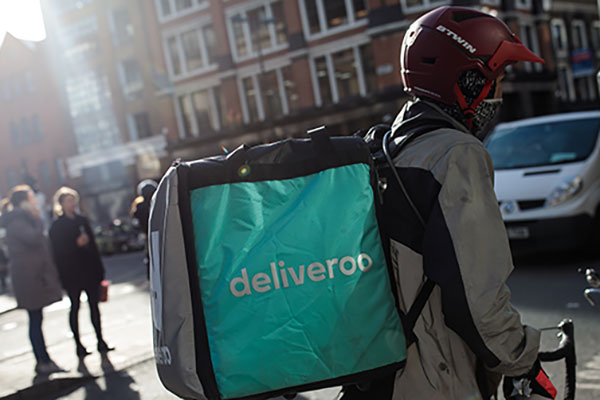SMart started out in Belgium as a small non-profit organization that supports artists and creatives in the development of their professional endeavours. Today SMart is a cooperative of freelancers, active in 45 cities across 9 European countries that counts over 100,000 members. SMart’s growth from the artistic sector to a wider group of freelancers across the service economy is linked to the challenges and solutions it addressed form the start.
When supporting artists, SMart actually developed tools and services adapted to the larger category of the autonomous workers, or what S. Bologna calls the “second generation of freelancers”. They strive for more autonomy but also need more protection. The issue is that social protection schemes across Europe are conceived around the dichotomy between salaried (subordinate) workers who need social protection and self-employed (autonomous professionals) considered financially self-sufficient to support themselves. But a new generation of freelancers are in between these two models. They often juggle with different jobs, changing teams and irregular income, which calls for flexible forms of organizations that they can use when they need. The solutions SMart provide tackle both economic and social needs of freelancers while allowing a democratic governance of the shared enterprise.
In SMart’s cooperative model, freelancers are autonomous (they are responsible for the development of their economic activity and revenue), through accessing the most protective legal status when working (salaried worker) while being also co-owner of the shared enterprise (they are shareholders).
Let’s deepen these various aspects. While developing one’s activity within SMart, freelancers are secured from bankruptcy as they use SMart’s legal entity to invoice, don’t need to invest big amounts in a company to start working (the SMart share hold is 30€/year) and don’t have to pay taxes on the enterprise, these are paid by SMart. Furthermore, freelancers can count on the advice of their counsellor for the development of their activity. As shareholders, freelancers are eligible to be part of the board and are invited to participate to the working groups that are set up to drive democratic governance. As salaried workers, freelancers feed in entitlement to social protection rights (unemployment, pensions etc) and access mutualized services developed by SMart: personalized advice, a salary guarantee fund (that pays freelancers within 7 working days), adapted insurance (accident at work extended to private life and civil liability), tailor-made economic and legal advice, legal expertise, training, co-working spaces, etc.
All these services are possible thanks to the IT platform that simplifies administrative complexities, allows to process and service a wide number of users (over 25.000/year in Belgium). This scaling of activity allows increasing benefits, which are redistributed in form of wide range of services for the benefit of freelancers, through the mutualisation of means, inscribed in SMart’s DNA and economic model.
SMart doesn’t just work in the Belgian context. It has replicated its model in different contexts as it is present in nine European countries, and there are demands from other continents (Canada and North Africa). In Europe, freelancers have invoiced about 200 million euros in 2017, which is proof of the model’s efficiency and success. In fact, SMart has won the “Social Innovation based on ICT” award, in the category best proven impact, given by the EU’s JRC DG.
The model is so innovative it's actually useful to groups of workers we hadn’t even imagined. For example, in 2015 we realised that hundreds of members were actually working for meal delivery platforms: Take Eat Easy (TEE) and Deliveroo. After talking to our members, we learned the way these platforms were functioning and realised it was neither good for our members nor compatible with our model. Therefore, we decided to negotiate with these platforms. Because there were so many students among our members (and the only way to declare their work is to provide them with the “student salaried status”), we were able to obtain payment of riders by the hour (instead of by the delivery), for minimum 3 hours shifts, a fixed hourly income, access to security and safety training. Therefore, riders also benefited from our insurance pack and mutual guarantee fund which allowed the SMart member riders to be paid when TEE went bankrupt in July 2016. These were the only workers (riders and restaurants included) who were paid that month. For SMart alone the cost for the equivalent of 3 weeks work was nearly €400,000.
But experimenting is within SMart’s DNA and it counts on staying on top of innovation, by continuing to develop new services to members. The next challenge is about moving from cross-sectorial services to providing services adapted to projects that are more complex. For example, by supporting members’ self-organization in coops that can provide solutions to the specificity of their sector of activity or value chain. This is designed to provide freelancers with leverage they need to be stronger together, and to self-determine their working conditions.
Furthermore, the environmental challenges are a game changer when it comes to the productivist economic model in which western societies are stuck. Some members find in SMart a concrete path to transition. Adapting to the changing world of work, for an inclusive society and labour market, that is SMart’s true passion and drive.
Sarah de Heusch is Project officer for SMart's Development & Strategy Unit. Currently addressing the issue of social protection and labor market evolutions (especially freelancers and so called “atypical workers”), she develops knowledge with academics and builds partnerships and collaborations with organizations and networks that share SMarts’ values and concerns.
Related articles
-
Beyond Bootcamps: Three Trends Shaping the Future of Skills and Training
Elvis Wong
Elvis Wong from Social Capital Partners on the three bootcamp models making training more accessible.
-
4 key takeaways from Future Work Awards 2019
Fabian Wallace-Stephens
After 9 months of research we identified over 400 applicants for our inaugural Future Work Awards. Today we announce our winners.
-
Good work in the gig economy – showcasing the future work awards
Fabian Wallace-Stephens
Our Future Work Awards finalists include a suite of innovations emerging to help secure good work in gig economy.




Join the discussion
Comments
Please login to post a comment or reply
Don't have an account? Click here to register.
Fascinating model. Does a platform like SMart exist in the UK?